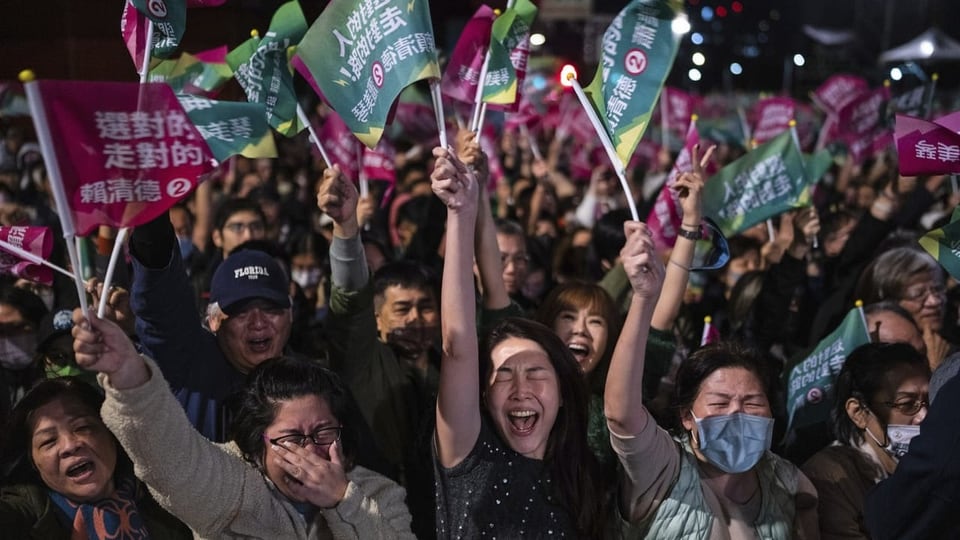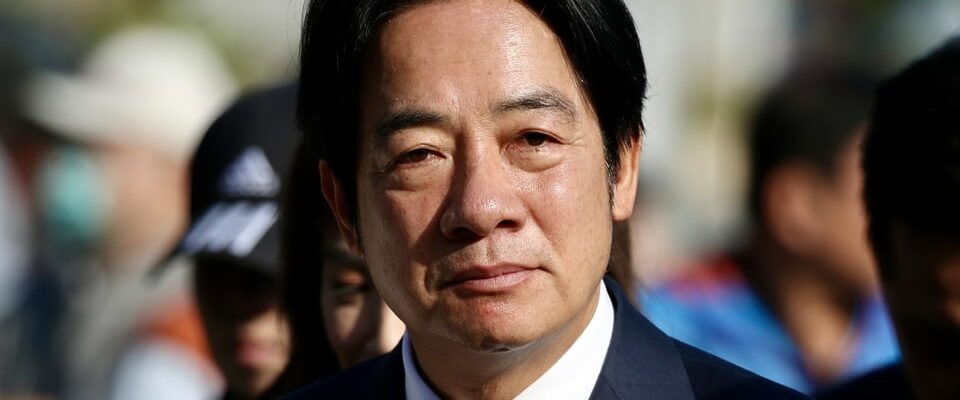- In the shadow of tensions with China, Taiwan has elected a new president and a new parliament.
- In a setback for Beijing, William Lai of the ruling Democratic Progressive Party (DPP) has won the election in Taiwan.
“I would like to thank the people of Taiwan for writing a new chapter in our democracy,” said the 64-year-old on Saturday evening (local time) in Taipei. The opposing candidates had previously admitted their defeat.
Legend:
The previous vice president of Taiwan, William Lai, will become the new president of the island nation.
Keystone/EPA/RITCHIE B. TONGO
After counting the majority of the ballot papers, the former vice president received around 40 percent of the vote, according to local media. Behind him was his challenger Huo Yu-ih from the China-friendly and conservative Kuomintang (KMT) with around 33 percent. Another candidate from the Taiwan People’s Party (TPP), Ko Wen-je, got around 26 percent, according to broadcaster figures.
The official final result was expected late in the evening. At the same time, the 19.5 million eligible voters decided on the new parliament, the Legislative Yuan, in which the DPP previously had an absolute majority.
Party wins third election in a row
The Progressive Party, which is clearly distancing itself from China, set a new record with the election results. It is the first party to win three consecutive terms since Taiwan began directly electing the president in 1996. In the island state, the head of state appoints the prime minister and is also commander in chief of the armed forces.

Legend:
The crowd cheers at a rally by the victorious Democratic Progressive Party in New Taipei City.
Keystone/LOUISE DELMOTTE
Another government under a DPP presidency is likely to mean Taiwan moving further closer to the US, while tensions with China continue and possibly worsen. Taiwan’s relationship with China was a dominant issue in the election campaign. Lai had announced that he would continue the line of his predecessor Tsai Ing-wen – who was sharply criticized by Beijing and who was not allowed to run again after two terms in office.
Lai wants to maintain the status quo in the Taiwan Strait
The previous vice president had also declared that he wanted to protect “the survival of the country and the lives of the people”. Lai wants to further strengthen national defense, work more closely with the democratic camp and use deterrence to maintain the status quo in the Taiwan Strait – the strait between China and Taiwan. “Peace rests on strength, not on the benevolence of the invaders,” he said.
Beijing counts Taiwan as Chinese territory, even though the island has had an independent, democratic government for decades. However, the DPP stands for Taiwan’s independence, although Lai does not want to officially declare it. For China, this case could be the basis for escalating the situation in the Taiwan Strait.
Beijing has already threatened several times to use military means if a “reunification” of Taiwan fails. A conflict in the important shipping route would have enormous consequences for global trade and would draw the USA into the conflict as Taiwan’s ally.
